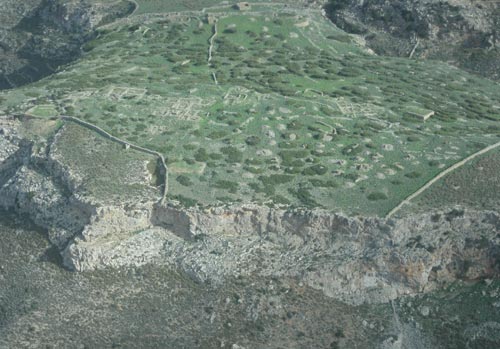Fieldwork at Zagora
The 1960s and 1970s Dig Seasons
It was an Australian team, led by Sydney University Archaeology Professor Alexander Cambitoglou, that in the late 1960s and early 70s conducted (under the auspices of the Archaeological Society at Athens) the first major excavations of the site. This revealed much of the settlement layout, and many of the artefacts discovered are now in the Archaeological Museum of Andros.
The 2010s Dig Seasons
In 2012, 40 years later, we returned to the site, thanks to an Australian Research Council (ARC) grant, to continue the exploration. The grant was awarded to the Department of Archaeology at the University of Sydney and the Australian Archaeological Institute at Athens. The Powerhouse Museum, the Archaeological Society at Athens and the Institute for Mediterranean Research (Crete) were major participants in this important project.
The 2012 fieldwork took place for six weeks from mid October to late November, and in 2013 and 2014 for six weeks from late September to early November.
The Zagora Archaeological Project utilises 21st century methods to add breadth and depth to our knowledge of this unique town. These are described in this website – see particularly the Zagora dig blog and For teachers sections.
The 2019 Dig Season
In 2019, The University of Sydney’s Department of Archaeology in collaboration with GML Heritage, the Australian Archaeological Institute at Athens and Sydney University Museums returned to Zagora for a three week season in July.
The aims of the 2019 season were to conduct archaeological excavations and a surface survey as well as explore subsurface remains with thermal/infrared imaging. A particular focus of the team’s attention in 2019 was an area in which evidence for workshop – or even ‘industrial’ – activities were revealed in the latter stages of the 2014 excavation season. This was a find of major importance for Aegean, and wider, archaeology. The season revealed new and important information which will help us understand the economy of the site and its place in the wider eastern Mediterranean.
The 2024 Dig Season
After a hiatus of five years we are are returning to Zagora in September for six weeks. Take a look at the blogs for our research aims and progress this season and watch this space for updates regarding our results!
